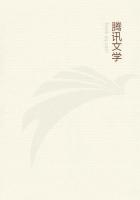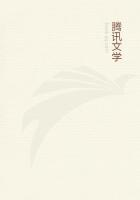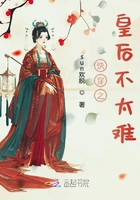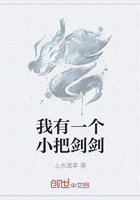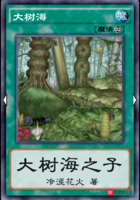[159]She shows all the semi-maniacal rancour of a good woman,or rather a woman who has not broken the eleventh commandment,'Thou shalt not be found out,'against an erring sister who has been discovered.In the East also these unco'gāid dames have had,and too often have,the power to carry into effect the cruelty and diabolical malignity which in London and Paris must vent itself in scan.mag.and anonymous letters.
[160]These faintings and trances are as common in the Romances of Chivalry e.g.Amadis of Gaul,where they unlace the garments to give more liberty,pour cold water on the face and bathe the temples and pulses with diluted vinegar (for rose water) exactly as they do in The Nights.
[161]So Hafiz,'B d-i-Sab chu bugzari'etc.
[162]Arab.'Takiyah.'See vol.i.224 and for the Tarn-Kappe vol.iv.p.176.In the Sinth sana Dwatrinsati (vulgo.Singh san Battisi),or Thirty-two Tales of a Throne,we find a bag always full of gold,a bottomless purse;earth which rubbed on the forehead overcomes all;a rod which during the first watch of the night furnishes jewelled ornaments;in the second a beautiful girl;in the third invisibility,and in the fourth a deadly foe or death;a flower-garland which renders the possessor invisible and an unfading lotus-flower which produces a diamond every day.
[163]Arab.'Judad,'plur.of Jadid,lit.= new coin,ergo applied to those old and obsolete;10 Judad were= one nusf or half dirham.
[164]Arab.'Raff,'a shelf proper,running round the room about 7-7? feet from the ground.During my day it was the fashion in Damascus to range in line along the Raff splendid porcelain bowls brought by the Caravans in olden days from China;whilst on the table were placed French and English specimens of white and gold'china'worth perhaps a franc each.
[165]Lane supposes that the glass and china-ware had fallen upon the divan running round the walls under the Raff and were not broken.
[166]These lines have occurred in Night dclxxxix.vol.vii.p.119.I quote Lane.
[167]The lines have occurred before.I quote Mr.Payne.
[168]This formula,I repeat,especially distinguishes the Tale of Hasan of Bassorah.
[169]These lines have occurred in vol.1.249.I quote Lane.
[170]She speaks to the'Gallery,'who would enjoy a loud laugh against Mistress Gadabout.The end of the sentence must speak to the heart of many a widow.
[171]These lines occur in vol.i.25: so I quote Mr.Payne.
[172]Arab.'Mus hikah;'the more usual term for a Tribade is'Sahikah'from'Sahk'in the sense of rubbing: both also are applied to onanists and masturbators of the gender feminine.
[173]i.e.by way of halter.This jar is like the cask in Auerbach's Keller;and has already been used by witches;Night dlxxxvii.vol.vi.158.
[174]Here they are ten but afterwards they are reduced to seven: I see no reason for changing the text with Lane and Payne.
[175]Wazir of Solomon.See vol.i.42;and vol.iii.97.
[176]Arab.'Ism al-A'azam,'the Ineffable Name,a superstition evidently derived from the Talmudic fancies of the Jews concerning their tribal god,Yah or Yahvah.
[177]The tradition is that Moh mmed asked Ak f al-Wad'ah'Hast a wife?';and when answered in the negative,'Then thou appertainest to the brotherhood of Satans! An thou wilt be one of the Christian monks then company therewithal;but an thou be of us,know that it is our custom to marry!'
[178]The old woman,in the East as in the West,being the most vindictive of her kind.I have noted (Pilgrimage iii.70)
that a Badawi will sometimes though in shame take the blood-wit;
but that if it be offered to an old woman she will dash it to the ground and clutch her knife and fiercely swear by Allah that she will not eat her son's blood.
[179]Neither dome nor fount etc.are mentioned before,the normal inadvertency.
[180]In Eastern travel the rest comes before the eating and drinking.
[181]Arab.''Id'(pron.'Eed) which I have said (vol.i.42;317) is applied to the two great annual festivals,the'F?te of Sacrifice,'and the'Break-Fast.' The word denotes restoration to favour and Moslems explain as the day on which Adam (and Eve)
who had been expelled from Paradise for disobedience was re-established (Uida) by the relenting of Allah.But the name doubtless dates amongst Arabs from days long before they had heard of the'Lord Nomenclator.'
[182]Alluding to Hasan seizing her feather dress and so taking her to wife.
[183]Arab.'Kharajā'=they (masc.) went forth,a vulgarism for'Kharajna'(fem.)
[184]Note the notable housewife who,at a moment when youth would forget everything,looks to the main chance.
[185]Arab.'Al-Malakāt'(not'Malkāt'as in Freytag) a Sufi term for the world of Spirits (De Lacy Christ,Ar.i.451).
Amongst Eastern Christians it is vulgarly used in the fem.and means the Kingdom of Heaven,also the preaching of the Gospel.
[186]This is so rare,even amongst the poorest classes in the East,that it is mentioned with some emphasis.
[187]A beauty among the Egyptians,not the Arabs.
[188]True Fellah--'chaff.'
[189]Alluding to the well-known superstition,which has often appeared in The Nights,that the first object seen in the morning,such as a crow,a cripple,or a cyclops determines the fortunes of the day.Notices in Eastern literature are as old as the days of the Hitopadesa;and there is a something instinctive in the idea to a race of early risers.At an hour when the senses are most impressionable the aspect of unpleasant spectacles ahs double effect.
[190]Arab.'Masukah,'the stick used for driving cattle;baton gourdin (Dozy).Lane applies the word to a wooden plank used for levelling the ground.
[191]i.e.the words I am about to speak to thee.
[192]Arab.'Sahifah,'which may mean'page'(Lane) or'book'(Payne).
[193]Pronounce,'Abussa'adat'= Father of Prosperities:

